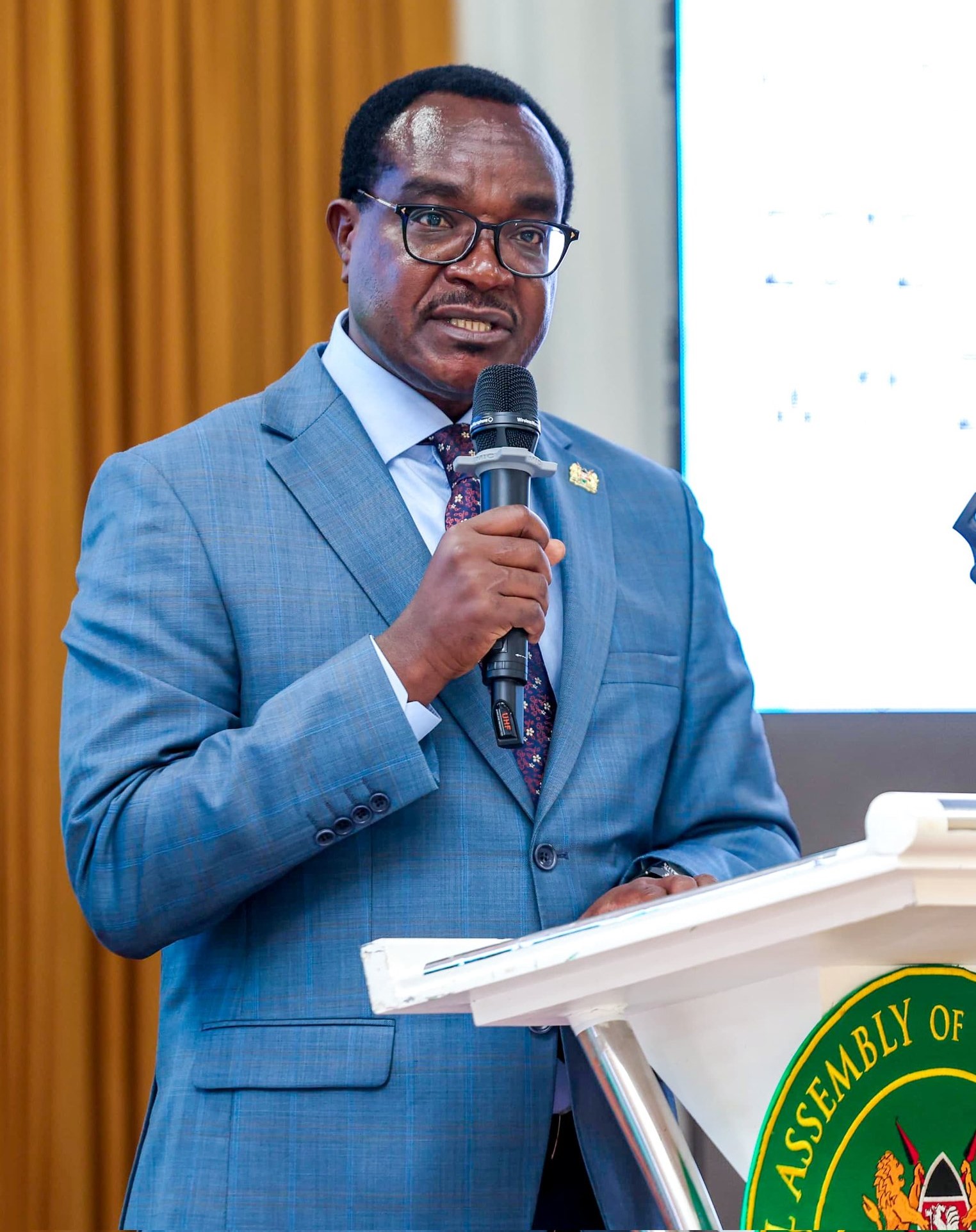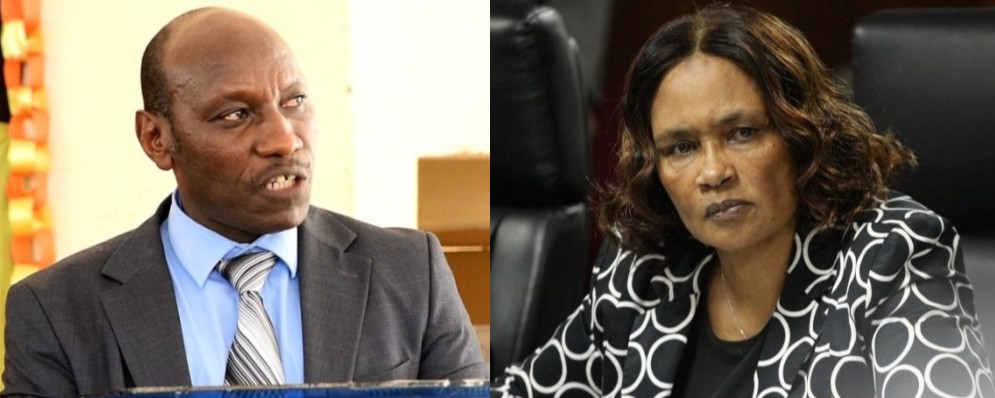By Education News Reporter
Kenya School of Law (KSL) has executed a Memorandum of Understanding (MoU) with the Higher Education Loans Board (HELB) on the administration of the KSL/HELB legal education fund to support needy Advocate Training Programme (ATP )students.
The move has led to Ksh. 10 million being allocated to needy students in form of loans to enable them complete their ATP course.
It further conducted a fundraising which raised Kshs. 2.7 million aimed at boosting the KSL/HELB kitty as revealed in the School’s 2022/2023-2027/2028 Strategic Plan which highlighted various milestones and achievements realized for the last three years ( 2018/19-2021/22 Plan period.
In April 1 last year, KSL partnered with HELB to set up the KSL Tuition Fund meant to offer [KSL Tuition] loans to students pursuing the ATP course in the School after it was discovered that many needy students are not able to complete the course due to financial constraints.
The first beneficiaries of the loan were new students for the 2021-2022 Financial Year whose loan application portal was opened from April 1, 2021 and closed on May 15, 2021 with the School maintaining in its statement released to the media dated April 1, 2021 that beneficiaries of the undergraduate HELB loans will not be prejudiced from benefiting from the KSL Tuition loan.
The ATP total tuition fee for a Kenyan resident student undertaking the course is Ksh. 145, 000 which includes the cost for the nine (9) units, library fee and Pupillage supervision fee.
KSL also trained over 6,000 ATP and 500 Paralegal Training Programme (PTP) students for the last three years with the trained students currently providing the much needed legal expertise in the Country.
The School also conducted 18 legal aid clinics (that is provision of free legal advice to members of the public by pro bono lawyers) where a total of 1,263 citizens were provided with pro-bono legal services for the last three years.
In curbing the recurrence of lack of clarity on academic progression to ATP, which has remained a threat to the number of students admitted to PTP, the School in its plan has recommended lobbying for amendments to the law to provide clear guidelines on academic progression and engage relevant parliamentary committee over the same.

“The Paralegal Training Programme in Kenya continues to face challenges in enrollment as the law does not provide clear mechanisms for academic progression. There is therefore need to harmonize the law and regulations to anchor academic progression,” reads the 2022/2023-2027/2028 Strategic Plan document in part.
Paralegals are legal assistants and researchers whose roles include provision of legal assistance, legal advice and legal education and information.
The lack of clarity in the admission requirements of ATP has for the last years increased litigation in various courts with a number of students suing the School for denying them admission into the programme, a situation that poses reputation risk that can lead to reduced enrolment to the KSL training programmes.
According to KSL, uncertainty regarding the admission criteria to the ATP has led to numerous lawsuits resulting in financial cost to the School; with the lawsuits arising mainly due to disharmony between KSL Act, 2012 and the Legal Education Act, 2012 and the regulations thereunder.
The school has however maintained that it will continue adhering to the admission criteria as stipulated in the law.
A study on factors influencing student performance in the Kenyan Bar examinations conducted by Kenya Institute for Public Policy Research and Analysis (KIPPRA) in 2019 determined that there is a strong correlation between the student performance at the bar examination and the quality of training offered at the undergraduate level.
According to the findings of the study report in 2017, 92.3 per cent of candidates who undertook the ATP and who had high school grades of A passed the Bar examinations in the first sitting. In the same year, 44.4 per cent of candidates who undertook the ATP and who had high school grades of C passed the Bar examinations.
“An analysis of student high school grades against their performance in the Bar examinations indicates that students with higher high school grades consistently performed better in bar examinations compared to students with lower high school grades,” read the KIPPRA study report in part.
In a bid to decentralize training programme (ATP) and enhance quality and accessibility of legal training, the school plans to license other providers for ATP in its new Strategic Plan which provides the framework that will guide the execution of the School’s mandate for the next 6 years.
“The accrediting and licensing of other providers will result in loss of monopoly for the ATP and beginning of competition in a market that had been dominated by the School. As such, the School requires to adopt creativity and innovation in the delivery of its mandate,” the strategic document adds further.
During a cabinet meeting in May this year, the Cabinet approved for tabling in parliament the Kenya School of Law (Amendment) Bill, 2021 among other bills which is meant to streamline legal training in the country.
If enacted, the Bill will mandate the Council of Legal Education (CLE) to determine the admission requirements to all Law programmes including the ATP, a role that is currently being done by KSL.
“Section 16 of the Kenya School of Law Act 2012, is amended by deleting the words ‘set out in the Second Schedule for that Course’ and substituting the words ‘prescribed by the Council of Legal Education under Section 8(3)(a) of the Legal Education Act, 2012 for that Course’,” reads the amendment bill in part.
The new Bill now seeks to delete all the sections that mandate KSL to determine admission criteria. For instance, in Section 16 and the Second schedule of the mother Act, the Kenya School of Law Act 2012; and places the role on CLE.
Currently, the KSL sets the admission requirement to the ATP, a situation that has put KSL and Law students seeking to admission for post-graduate training in continuous court battles.
The ATP is designed to equip lawyers with the practical skills required by the profession as mandated by the Kenya School of Law Act, 2012 and the Advocates Act Cap16.
The ATP is conducted in 18 months; 12 months in-house and 6 months pupilage. Teaching in the ATP is conducted on a clinical basis.
The programme fills the gap for practical and clinical experiential training that prepares the lawyers for effective legal practice.






